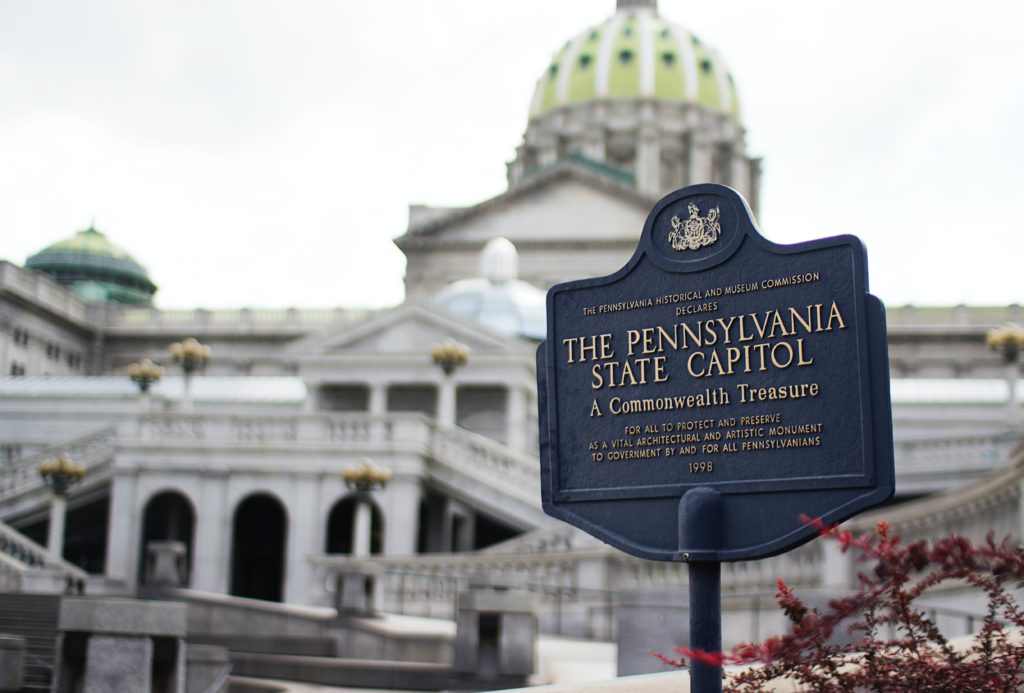Photo by Katherine McAdoo on Unsplash
Pennsylvania’s Department of Environmental Protection (“DEP”) is taking steps toward meaningfully engaging residents of communities that are disproportionately affected by industrial development through a new Environmental Justice Policy. While CCJ sees this policy as a step in the right direction, some of our local legislators feel that these steps have gone too far.
Essentially, the policy attempts to ensure that residents of environmental justice communities know about and have an opportunity to provide public comment during the permitting process for projects that would trigger significant public concern due to potential impacts on human health and the environment (“Trigger Permits”). Trigger permits are meant to accomplish four goals: encourage operators to provide community residents with detailed but easy-to-understand documents related to a permit application; implement a 30-day public comment period on all permit applications before they are approved; engage a community liaison to ensure residents understand the information they are given; and coordination of timely, interactive public meetings so residents are aware of the scope and nature of the permit application.
The Environmental Justice Policy is designed to apply only when the proposed permitted activity takes place within an environmental justice community and reaches the level of a Trigger Permit. However, the DEP has proposed the use of “Opt-In” permits to include other permits that do not rise to the level of a Trigger Permit or for proposed activity that takes place outside of an environmental justice community. The DEP will opt-in a permit application that is not a Trigger Permit under the proposed policy if the DEP believes it “warrant[s] special consideration.” For example, an Opt-In permit could be a proposal to develop a sludge processing facility, processor, or incinerator or sewage treatment plant with a capacity of more than fifty million gallons a day.
CCJ recognizes that this policy is an important step in the right direction, but also recognizes that there are additional measures the DEP could take to protect environmental justice communities – which we advocated for in our public comment.
Unfortunately, legislators on the House Environmental Resources and Energy Committee (“Committee”) signed on to a comment submitted by Committee Chair Daryl Metcalfe which criticizes the proposed Environmental Justice Policy. Almost all of the Representatives from Washington and Greene Counties signed on to this comment, including Representatives Bud Cook (R-49), Joshua Kail (R-15), Tim O’Neal (R-48), Jason Ortitay (R-46), and Pam Snyder (D-50).
The Committee takes a view opposite of CCJ and many of our members. For one, they believe that too many permits can be subject to increased community involvement via the “Opt-In” process. Yet, most permitting regulations already require a 30-day comment period, so any applicants whose permits qualify for special consideration will only have two additional steps to take: create easy to understand documents for the public and work with the DEP’s community liaison. Hardly something worth complaining about.
Most importantly, the Committee opposes the policy because they are of the opinion that it will make significant changes to the permit application and review process, which will increase already present difficulties and delays. The Committee is strongly opposed to the core of the policy – permit applicants engaging with and providing community members the necessary information to make educated comments on the proposed operation – because it imposes too many “obligations” on applicants. The Committee incorrectly believes that if permit applicants do not comply with every single recommendation in the policy, their applications will be denied. However, because the DEP chose to make these advancements in the form of a policy instead of a formal regulation, it cannot be a reason for permit denial. Additionally, the DEP will approve permit applications when they “are complete and adequately demonstrate that they meet all applicable regulatory and statutory requirements with no remaining deficiencies.” It comes as a surprise that members of the Committee do not understand the DEP’s permitting requirements when it is their responsibility to be informed on the process.
Unfortunately, our Representatives appear to object to increased transparency and public participation, which is an odd position for publicly elected officials to take. Public engagement and participation are critical to achieving outcomes that reflect the needs of all stakeholders. The policy aims to educate and inform communities when the DEP is making permitting decisions. Ensuring that mechanisms are put in place to provide early notification of activities affecting overburdened communities is vital and hardly objectionable, especially when the mechanisms are non-binding. Which begs the question, why are our Representatives objecting to a policy that does just that?
The goal of the Environmental Justice Policy is to provide more information to community members prior to industry development. Specifically, it is meant to ensure communities are aware of proposed permits, what activities the permit covers, the harms and potential benefits of the permit, and to provide a forum for your voice to be heard. However, our elected officials are sharing that hearing voices of their constituents, those who know the area of development better than anyone, is an unnecessary hurdle to cross.
An action for Washington and Greene County residents to take has been removed, and there is an update to this blog here:


